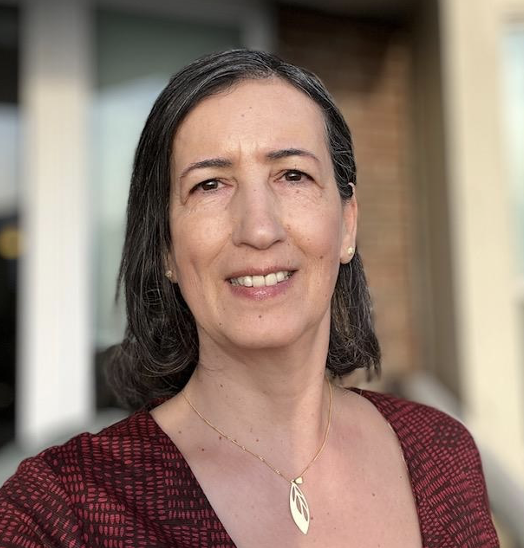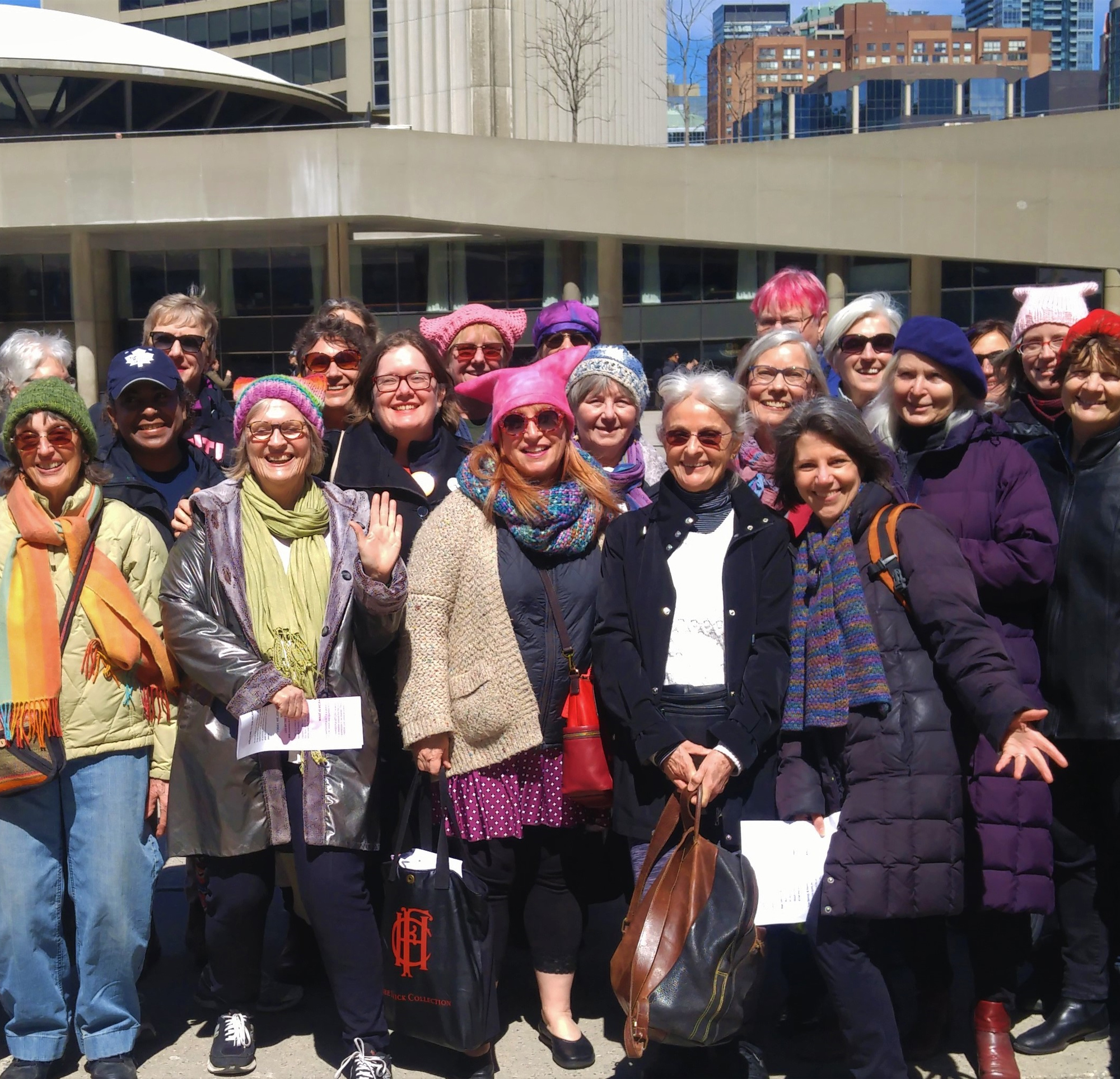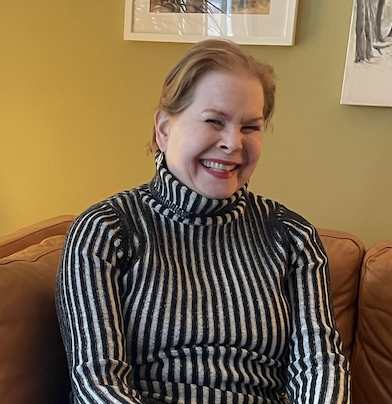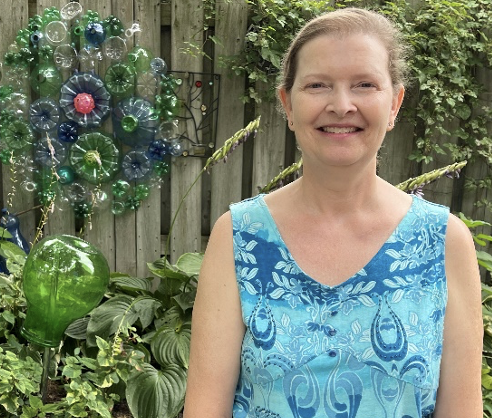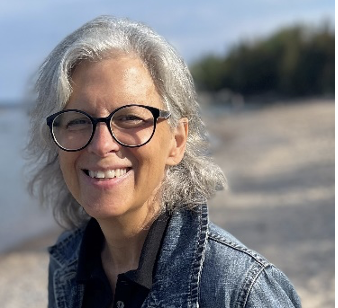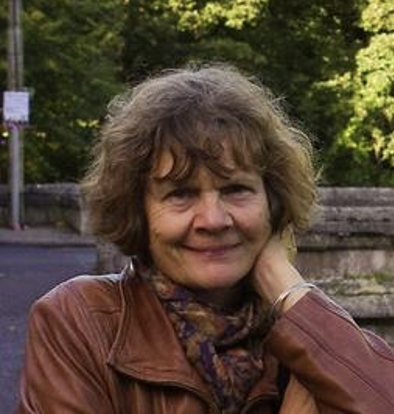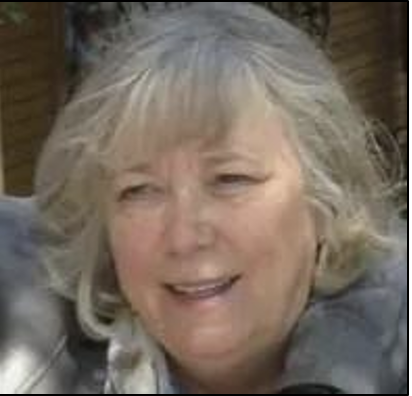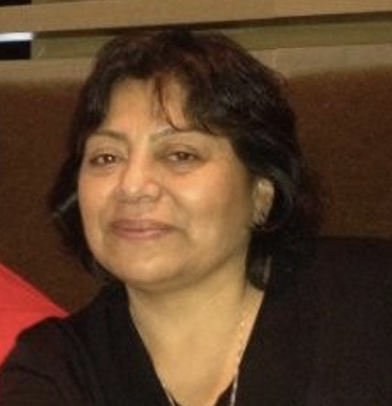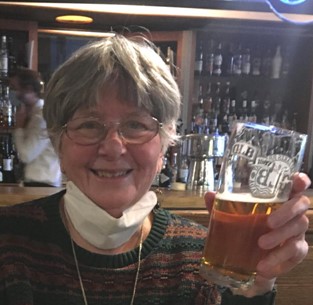Second Soprano
Behnaz McCallum is a relatively new member, having joined Echo in the fall of 2023. She is very enthusiastic about the singing with the choir, and agreed to share her impressions with others who might be looking for a similar experience.
Behnaz is a retired audiologist with over thirty years of experience, twenty of which were spent working in a private hearing clinic. She is definitely an auditory person. Behnaz holds a graduate degree from Tehran University and a doctorate from the Arizona School of Health Sciences. She found helping people with their communication problems very rewarding, but took early retirement during the Covid pandemic. Behnaz now has time for a wide range of activities including painting, studying piano, and singing. She practices yoga and meditation daily, as she has for many years.
Although she had never sung in a choir before joining Echo, Behnaz plays the Persian frame drum, or Daf. This instrument is used in folk music, and is an important component of Sufi music, which is very spiritual and uplifting.
Behnaz learned about Echo through a newspaper ad. She had always wanted to sing in a choir, and the fact that Echo is a women’s choir and requires no experience and no audition appealed to her. She became a member and participated in her first concert In December, which she found to be a lot of fun.
Following is an excerpt from our conversation.
Echo: What do you like about singing with Echo?
BM: When I started going to rehearsals, I thought, this is what I want: some community, different kinds of music, progressive music; when you care about different people with different orientations, that’s nice…I like the songs, the repertoire. There is always an interesting mix of music. Last season I liked guest artists Andrew Craig and the gentleman from South Africa [Bongani Magatyana]. When Andrew played that drum …I was jumping up and down. I kind of let go…I never sang in front of people before… but the choir actually holds you. I felt supported, and held by the choir and I just let go.…I feel very joyful when I sing.
Echo: You lead a very busy life in retirement, taking care of mind, body and soul. In addition to singing with Echo, you also study piano and paint. Can you talk a little about this?
BM: I have done Persian calligraphy in the past. After attending a painting class in Alberta during a visit with relatives, I found a class with the TDSB [Toronto District School Board] and started drawing and painting. I haven’t stopped yet. I enjoy the colours…I work from a picture and put my own impression in it. With no place to store canvases, I started painting on paper. I don’t paint to sell.
Echo: Do you have any suggestions on how to improve Echo? Is there anything you would like to see?
BM: I enjoy what we do, but I would like to do more socializing. Food is a way to connect. I enjoyed the ice breakers at the beginning of the session. They gave us a chance to get to know each other.
I’m glad I found this group. If something doesn’t come up, I will be a member for a long, long time.
Behnaz lives in Toronto with her husband and their Beagle Terrier, Piper.
Interview by Christine Boyanoski
